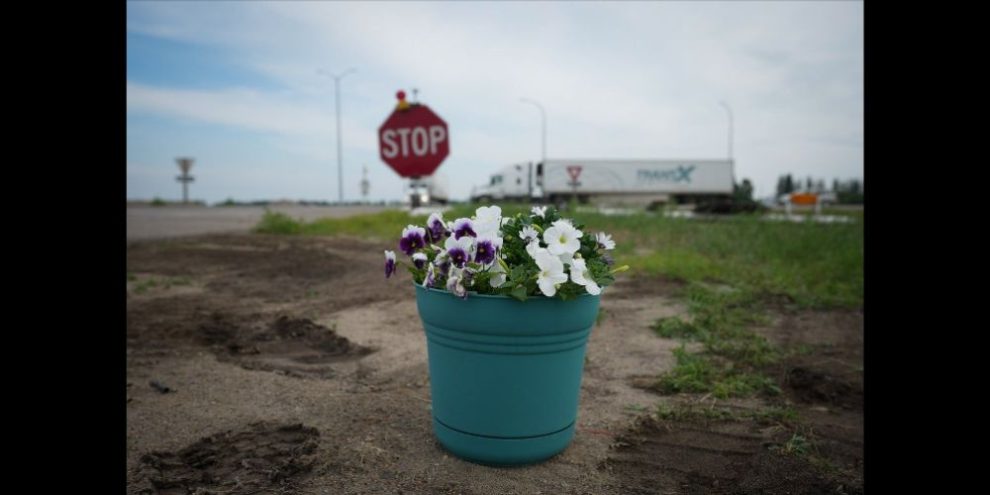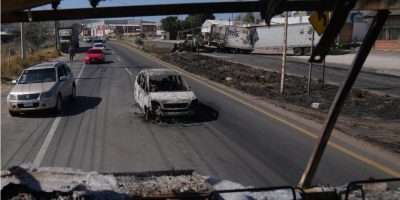
By Ritika Dubey
For seniors in communities across Manitoba, minibuses or handivans are essential means of travel.
"Without the use of the handivan as a service, there isn't much else for seniors who are in wheelchairs or walkers to be able to move around," said Justin Cicholski, manager of a non-profit handivan service in Neepawa, Man., a town about 190 kilometres northwest of Winnipeg.
Fifteen people on a handibus who were headed out on a day trip from a seniors centre to a casino were killed Thursday when it crashed with a semi-trailer truck near Carberry, Man.
The bus was carrying 25 men and women between the ages of 58 to 88.
Cicholski drives seniors and people with disabilities around in minibuses and minivans in the Neepawa area with Neepawa District Handi Transit.
He said a traffic light should be installed at the intersection of the Trans-Canada Highway and Highway 5, where Thursday's crash happened.
Greg Shaw, a driver with the Neepawa company, agreed it's a busy intersection.
"The scary thing is we've all made that trip. We've all crossed that highway. We know how busy it is," Shaw said.
"We know what's at stake."
Shaw, who was an emergency vehicle driver for 30 years before he got behind the wheel of a handibus, said the buses usually have an overseer or supervisor responsible for looking after the seniors on board.
That person makes sure passengers are buckled in with seatbelts or their wheelchairs are strapped to the floor. Nobody should be getting up or walking around, said Shaw.
"Nothing is loose at all. Safety is just paramount."
Drivers operating buses in Manitoba require a Class 2 driver's licence, which allows them to drive around more than 24 passengers.
Kristy Rydz with Manitoba Public Insurance added that minibuses are also required to carry liability insurance of $2 million.
She said she did not have numbers available on how many minibuses are registered in the province.
Shaw said he maintains extra caution as a driver.
"When you have vulnerable people riding with you, you go that extra step of being safe."
That means taking an extra second or two to check each way for oncoming traffic when passing through an intersection, he said.
"Because we're such small, tight-knit communities, we know the people who are riding with us," he said. "There's just a personal relationship."
Cicholski said he hires many retired people in their 60s to work as drivers because they can relate to their senior passengers and they can have a good time on the trips.
All the drivers have to go through health checkups every few years to make sure they're fit to drive, he said.
The bus involved in the deadly crash was run by Quality Care Transit, a company licensed by the City of Dauphin. It organized the trip from the Dauphin Active Living Centre to Sand Hills Casino in Carberry.
The company extended its sympathies for the crash in a Facebook post on Friday. "My heart aches for everyone that was involved," it said.
A social media post announced the launch of Quality Care in November 2022.
Most communities in rural areas have their own accessible transit systems run by local municipalities and towns and others are privately owned.
Dauphin and District Handivan Service has been working with its community for more than 38 years and has four vans operating in the city.
Cicholski said it's hard to imagine the pain families of the bus crash victims are going through.
Because of the crash, he said, his bus company is making an immediate change to start registering emergency contacts for all passengers in case of an accident.
"Hopefully, it never happens," he said.
"But in the event that something does happen, we will have a list of everybody travelling with us."
This report by The Canadian Press was first published June 16, 2023.
Banner image via The Canadian Press





